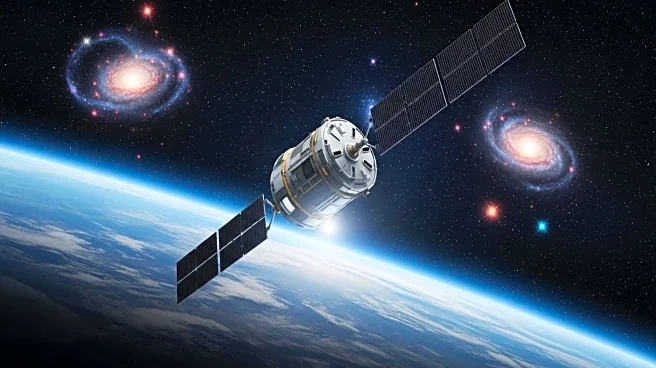What is the story about?
What's Happening?
Congress is currently reviewing the National Defense Authorization Act (NDAA), a critical piece of legislation that is essential for defense operations. This year, lawmakers have submitted over 1,100 amendments, with several focusing on space-related issues. Among the amendments up for debate are proposals to integrate commercial or state-run spaceports into the Department of Defense's launch infrastructure, and to utilize US Space Command satellites for tracking fentanyl trafficking in collaboration with the Department of Homeland Security and the Drug Enforcement Administration. Additionally, there is a call for a report on activities in the upper atmosphere and near-space environment, including intelligence missions by other nations. However, some amendments did not make it to the floor, such as preventing the transfer of the Space Shuttle Discovery from the Smithsonian National Air and Space Museum to Texas, and the ORBITS Act aimed at cleaning up space debris.
Why It's Important?
The amendments being debated have significant implications for national security and space operations. Integrating commercial spaceports into defense infrastructure could enhance the United States' launch capabilities and foster public-private partnerships in space exploration. Tracking fentanyl trafficking via satellites represents a novel approach to combating drug trafficking, potentially improving national security and public safety. The focus on upper atmosphere activities highlights the growing importance of space as a domain for intelligence and defense operations. The exclusion of certain amendments, such as the ORBITS Act, underscores ongoing challenges in addressing space debris, which poses risks to both military and civilian satellites.
What's Next?
As the NDAA progresses through Congress, the selected amendments will be debated, potentially leading to changes in defense and space policy. The outcomes of these debates could influence future collaborations between government agencies and private companies in space operations. Stakeholders, including defense officials, space industry leaders, and policymakers, will be closely monitoring the discussions to assess the impact on national security and commercial space activities. The decisions made could set precedents for how space-related issues are integrated into defense strategies.
Beyond the Headlines
The debate over space amendments in the NDAA reflects broader trends in the militarization and commercialization of space. As space becomes increasingly contested, ethical considerations regarding surveillance, privacy, and international cooperation are likely to emerge. The focus on space debris also highlights environmental concerns associated with space exploration, prompting discussions on sustainable practices in orbit.















